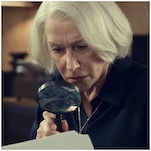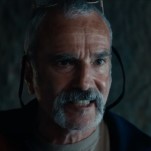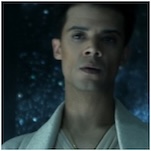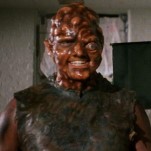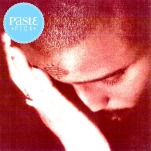TV One’s Rosa Parks Biopic Behind the Movement Finds New Depth in a Familiar Figure
Photo: TV One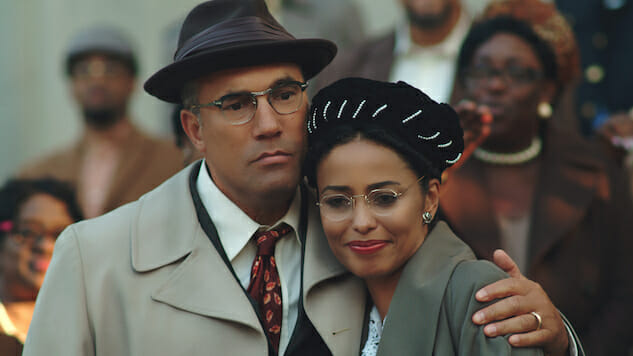
When I took my teenage daughter to see Hidden Figures, she said, “I know movies about things that really happened are bent around and changed in little ways to make it more dramatic or to make a point.” She paused and added: “But, God, I hope everything in that film happened exactly, exactly the way they showed it.”
Historical films, in particular films about politics and civil rights clashes, always give me the same feeling. Sometimes I have no idea what’s been changed to suit the film’s themes, what’s been glossed over to make a character more sympathetic than they might’ve been in reality, what’s been left out, what’s been added for impact. It’s a totally separate question from whether it’s a good film, but I rarely leave a biopic without wondering how much was invented, interpreted, subtracted, for the sake of story. This film about Rosa Parks gave me the same feeling my daughter had about Hidden Figures. I hope it was exactly like that.
Among the heroes of the Civil Rights movement of the mid-twentieth century, Rosa Parks is hardly obscure: Her story is known to most third-graders, at least in its basics. She refused to relinquish her seat on a Montgomery, Alabama bus to a white man, and it lit a fire. But I think we’re often told variants on “because she was tired after a long day’s work” and asked to imagine a bent, careworn, exhausted woman. Rosa Parks was tired, all right, but what she was tired of was being pushed around and told a white man had more of a right to her space than she did. She’d been agitating for civil rights in Alabama for years, which is an aspect of her story we don’t hear as much about. She was a secretary for her NAACP chapter and a voter registration activist.
The film begins as the news of the murder of Emmett Till is breaking, and ends on the evening of December 5, 1955, following Parks’ (Meta Golding) trial, also the day of what was to be a one-day boycott of the Montgomery bus system (it ended up lasting more than a year). It follows Parks, her husband, Raymond (Roger Guenveur Smith), E.D. Nixon (Isaiah Washington), who organized the boycott, Professor Jo Ann Robinson (Loretta Devine), a prominent activist with the Women’s Political Council, and the young Dr. Martin Luther King, Jr. (Shaun Clay), among others, in the short time between her famous refusal to give up her seat and her trial.
This is not a super-challenging film, in most ways. It’s about good, decent people making a conscientious choice to fight for their rights, their dignity, their basic humanity, in a system long rigged against those things. It’s a film with a good heart and a clear message and if you actually have a third-grader who doesn’t know this story, it’s a great film to make sure they watch. The editing is a little perfunctory, the artistic design is maybe a little bit basic—it’s solid, but not a genre-shattering artistic tour de force. I wish it had ended differently: A lot happens in those few days, and I understand the decision to end it where it ends, but it left me wishing I could have seen the aftermath of the Montgomery bus boycott instead of cutting to black and flashing a few written summaries (“Rosa and Raymond Parks’ home was firebombed. They both lost their jobs and were forced out of Montgomery” really opens a lot more questions than it answers). The dramatic tension is largely pretty low considering how much was going on and how fast it happened. But the character development is fantastic, and if this isn’t a film about character, I don’t know what is. And not everything has to privilege dramatic tension over everything else. Sometimes the message is plenty, and you can still do a hell of a lot with a great story, a great script and great performances, all of which this has. Meta Golding is stellar as Rosa Parks, exuding a serene strength and graciousness I think most of us wish we possessed. I loved every minute Loretta Devine was onscreen. Isaiah Washington is marvelous. Shaun Clay steps into the formidable shoes of one of the 20th century’s greatest and most important orators with aplomb.
-

-

-

-

-

-

-

-

-

-

-

-

-

-

-

-

-

-

-

-

-

-

-

-

-

-

-

-

-

-

-

-

-

-

-

-

-

-

-

-















